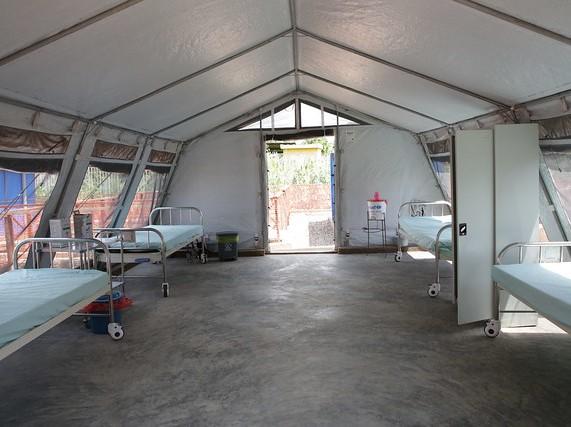The number of Ebola cases continues to slowly rise in the Democratic Republic of the Congo (DRC) outbreak, with four more cases reported today, as global health officials released their latest overview of needs to prevent more spread to the DRC's neighbors through the end of the year.
In other developments, the World Health Organization (WHO) said in its latest detailed situation report yesterday that pockets of insecurity continue to hamper the response.
New cases continue slow rise
According to the WHO's online dashboard today, the 4 new cases lift the outbreak total to 3,175 cases. Investigators are still following up on 445 suspected infections.
One more patient died from Ebola, putting the fatality count at 2,119.
Meanwhile, the latest daily update from the DRC's multisector Ebola committee (CMRE) had a few details about 2 cases reported yesterday, noting that they were both from Oicha in North Kivu province.
Insecurity pockets persist
In the latest situation report, the WHO said security incidents in affected areas are still impacting all parts of the response, including safe and dignified burials, vaccination, contact tracing, and case reporting. For example, it said a major incident last week in Lwemba, which is in Mandima health zone, is still hampering response activities in the area.
"Overall, these incidents underscore the need for continued and proactive engagement and sensitizing of local communities, especially in the high risk areas that may not currently be affected," the WHO said.
The WHO still recommends interpreting weekly fluctuations in case numbers with caution, emphasizing that a single incident has the potential to change the course of the outbreak. It warned that after a week with no response operations in Lwemba, a surge of cases could be reported in the weeks ahead when activities resume.
On a positive note, no new confirmed cases have been reported in areas where robust public health efforts have gained traction, showing that the approaches need to continue, the WHO said.
Needs for next preparedness phase
In a note to the media today, the WHO said United Nation (UN) emergency relief coordinator Mark Lowcock and WHO health emergencies program director Mike Ryan, MD, launched the UN regional Ebola preparedness plan, which plots out the needs and requirements from July through December.
The report sums up urgent activities and funding needed to prevent Ebola from spreading beyond the DRC.
The 34-page overview includes elements from national plans of nine countries in the region. Though financial donations and other contributions by nations and groups have been a key factor in the progress so far, much more is needed. The overall price tag for the end of the year is $66 million.
The priority 1 countries are near where cases have been reported that have areas of large-scale movements of goods and people across borders. They are Burundi, Rwanda, South Sudan, and Uganda. The priority 2 countries—all rest that neighbor the DRC—are Angola, Central African Republic, Republic of Congo, Tanzania, and Zambia.
See also:
Sep 25 WHO Ebola preparedness overview of needs and requirements
Sep 24 WHO situation report
Sep 24 CMRE update


















